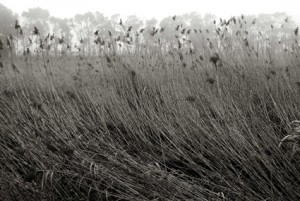What do you think?
Rate this book


97 pages, Paperback
First published January 1, 1951
Below the hill grows a field of high Indian grass that changes color with the seasons: go to see it in the fall, late September, when it has gone red as sunset, when scarlet shadows like firelight breeze over it and the autumn winds strum on its dry leaves sighing human music, a harp of voices.
About all natural things Dolly was sophisticated; she had the subterranean intelligence of a bee that knows where to find the sweetest flower: she could tell you of a storm a day in advance, predict the fruit of the fig tree, lead you to mushrooms and wild honey, a hidden nest of guinea hen eggs.
Sister Ida chose a place on the bank from which she could supervise the bathing. “No cheating now – I want to see a lot of commotion.” We did. Suddenly girls old enough to be married were trotting around and not a stitch on; boys, too, big and little all in there together naked as jaybirds.






